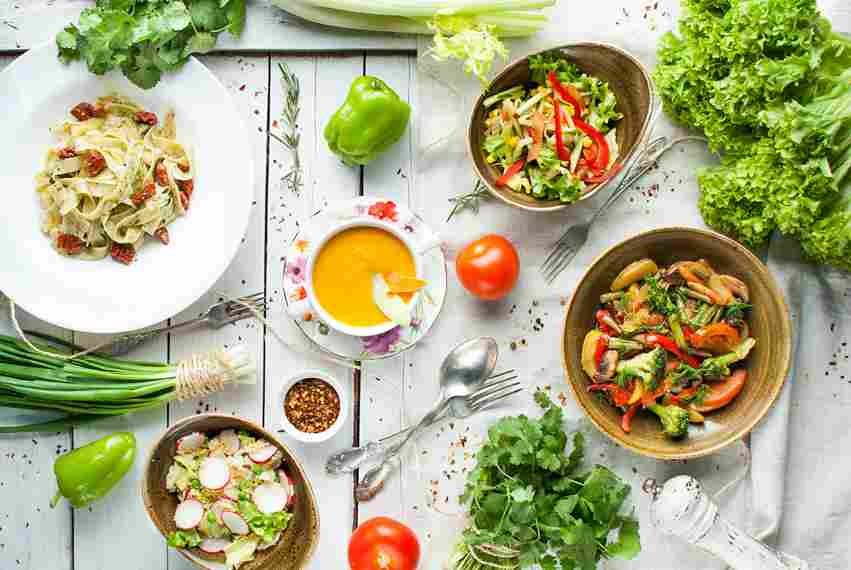Hummus is a popular Middle Eastern dip that is enjoyed all over the world. Made from chickpeas, tahini, olive oil, and a variety of other ingredients, it is a delicious and healthy addition to any snack or meal. However, if you are a vegan or follow a plant-based diet, you may be wondering whether hummus is a vegan-friendly food. In this article, we will explore the ingredients and nutritional value of hummus to determine whether or not it is suitable for a vegan diet.
What is Hummus?
Hummus is a dip or spread that originated in the Middle East, and it has been a staple of Middle Eastern cuisine for centuries. The traditional recipe for hummus consists of chickpeas, tahini, lemon juice, garlic, and olive oil. However, there are many variations of the recipe that include additional ingredients such as spices, herbs, and vegetables.
Is Hummus Vegan?
The short answer is yes, hummus is generally considered to be a vegan food. The ingredients used to make hummus are plant-based, and there are no animal products or by-products used in the recipe. However, there are some variations of the recipe that may not be suitable for a vegan diet, such as those that include yogurt or sour cream.
Ingredients in Hummus
As previously mentioned, the traditional recipe for hummus includes chickpeas, tahini, lemon juice, garlic, and olive oil. Let’s take a closer look at each of these ingredients to determine whether they are vegan-friendly.
Chickpeas
Chickpeas, also known as garbanzo beans, are a type of legume that are high in protein and fiber. They are a staple in many vegan diets and are a great source of plant-based protein.
Tahini
Tahini is a paste made from ground sesame seeds, and it is a common ingredient in Middle Eastern cuisine. It is high in healthy fats and is a good source of calcium and iron.
Lemon Juice
Lemon juice is a common ingredient in hummus, and it is used to add flavor and acidity to the dip. It is a vegan-friendly ingredient that is low in calories and high in vitamin C.
Garlic
Garlic is a flavor-enhancing ingredient that is used in many dishes, including hummus. It is a plant-based ingredient that is rich in antioxidants and has many health benefits.
Olive Oil
Olive oil is a healthy fat that is used to give hummus a smooth and creamy texture. It is a vegan-friendly ingredient that is high in monounsaturated fats and antioxidants.
Nutritional Value of Hummus
Hummus is a healthy and nutritious food that is packed with nutrients. It is high in protein, fiber, and healthy fats, and it is also a good source of vitamins and minerals.
Protein
Chickpeas are a great source of plant-based protein, and they are the main ingredient in hummus. One cup of chickpeas contains approximately 15 grams of protein, making them an excellent choice for vegans and vegetarians.
Fiber
Hummus is high in fiber, which is important for maintaining good digestive health. One cup of chickpeas contains approximately 12 grams of fiber, which is about 50% of the recommended daily intake for adults.
Healthy Fats
Tahini and olive oil are both sources of healthy fats, which are important for maintaining good heart health. These healthy fats can help lower cholesterol levels and reduce the risk of heart disease.
Health Benefits of Hummus
In addition to being a vegan-friendly food, hummus is also a healthy and nutritious addition to any diet. Here are some of the health benefits of hummus:
May Help with Weight Management
Hummus is a filling and satisfying food that can help you feel fuller for longer periods of time. This can help with weight management by reducing the overall amount of calories you consume throughout the day.
May Help Lower Cholesterol Levels
The healthy fats in tahini and olive oil can help lower cholesterol levels and reduce the risk of heart disease. Additionally, the fiber in chickpeas can help lower LDL, or “bad,” cholesterol levels.
May Help Regulate Blood Sugar Levels
The fiber in chickpeas can also help regulate blood sugar levels by slowing down the absorption of sugar into the bloodstream. This can help prevent spikes in blood sugar levels, which can be beneficial for people with diabetes.
May Improve Digestive Health
The fiber in hummus can help improve digestive health by promoting the growth of healthy gut bacteria. This can help prevent digestive issues such as constipation and diarrhea.
How to Make Vegan Hummus
Making vegan hummus is easy and can be done in just a few simple steps. Here is a basic recipe for vegan hummus:
Ingredients:
- 1 can chickpeas (drained and rinsed)
- 1/4 cup tahini
- 2 tablespoons olive oil
- 2 tablespoons lemon juice
- 1 clove garlic
- Salt and pepper to taste
- Water (as needed)
Instructions:
- Add chickpeas, tahini, olive oil, lemon juice, and garlic to a food processor or blender.
- Blend until smooth, adding water as needed to achieve desired consistency.
- Season with salt and pepper to taste.
- Serve with pita bread, vegetables, or your favorite dipping chips.
Conclusion
In conclusion, hummus is a vegan-friendly food that is packed with nutrients and health benefits. Made from plant-based ingredients such as chickpeas, tahini, and olive oil, it is a delicious and nutritious addition to any meal or snack. Whether you are vegan or not, hummus is a healthy and tasty food that you can enjoy guilt-free.

